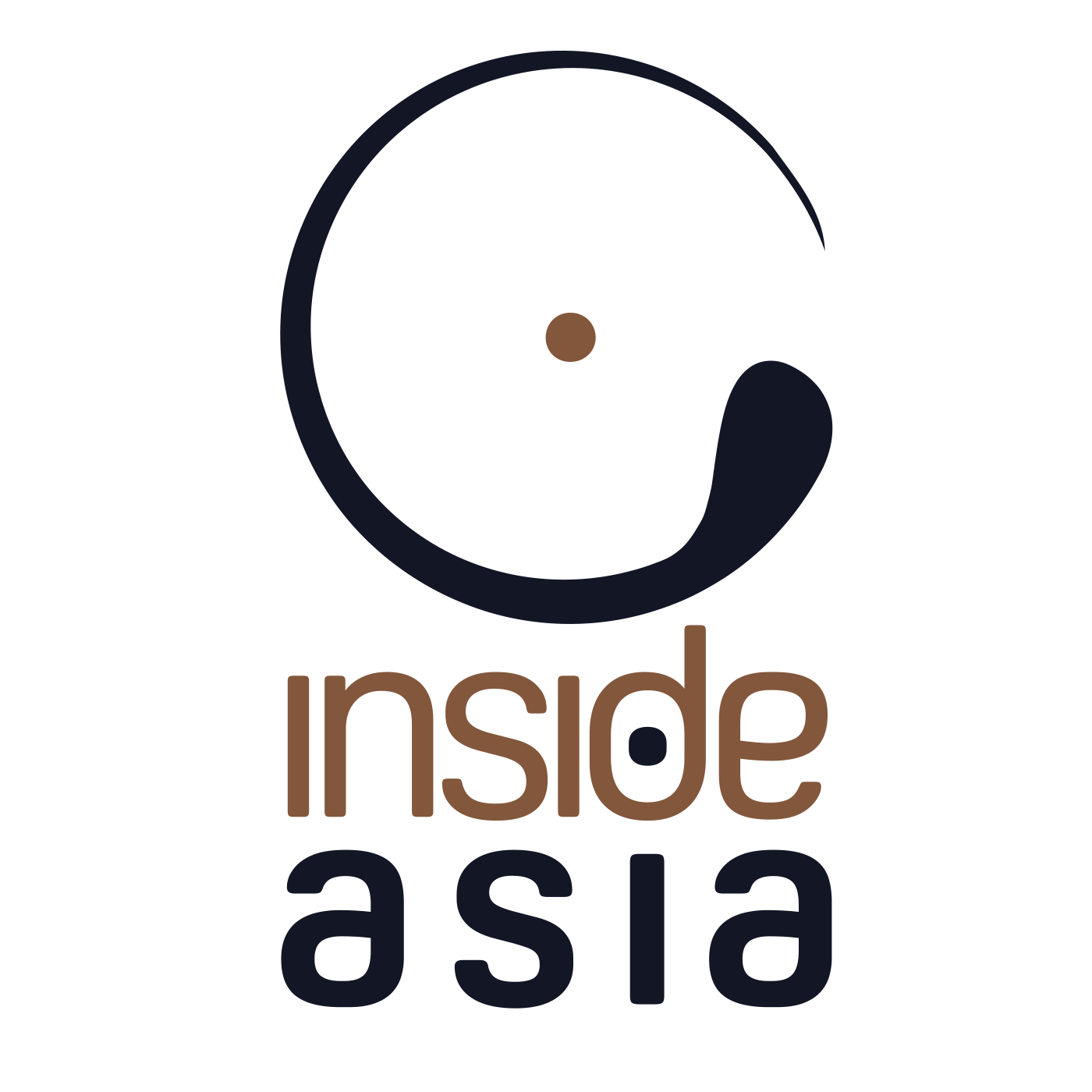Episodes

Saturday Feb 06, 2021
Inside Asia – A New Season For a New Era
Saturday Feb 06, 2021
Saturday Feb 06, 2021
It’s 2021. A new year brings new hope. For those of you who’ve generously followed Inside Asia for the past two seasons, we thank you for listening and for your loyal support.
Over the course of the past 30 months, we’ve produced nearly 170 episodes, bringing to you insights through conversation from some of the region’s most compelling thinkers, leaders, and entrepreneurs. We’ve covered geopolitics, trade, technology, sustainability, the future of food, and leadership trends. We’ve covered vast territories as well, sharing insights from China, Japan, Southeast Asia, India, and even the Middle East. Asia is a smorgasbord of change and innovation and it’s been an honor and pleasure to be your host.
Of all the topics and ideas covered in recent years, there is one that stands out above all others, and that’s Corporate Purpose. Week-in and week-out, the topic pervades the changing business landscape. Beyond the death and devastation caused by the global pandemic, it has taught us one thing: We can no longer operate in the world in the same tried and true way. It’s time for a change.
How we as a society choose to address that change will define us for all ages. Corporate Purpose is to the coming decade what digital transformation was to the last. Increasingly, companies the world over are embracing the idea of conscious capitalism, committing resources to environmental protection and social justice. No longer is it enough for companies to remain myopically focused on growth and profit. Corporations are uniquely imbued with the kind of talent, ingenuity and resourcefulness to solve the world’s biggest problems.
In the coming weeks and months, Inside Asia will commit its time and energy to covering Corporate Purpose as it plays out in Asia. The region is uniquely positioned not just to follow, but to lead the world out of our current climate, health and economic crises. Each week I’ll introduce you to the companies, enablers, and thought-leaders who see Corporate Purpose as the hallmark of our times.
We invite you to join us and if you haven’t already, please search for and subscribe to Inside Asia podcast and the Inside Asia newsletter. Visit us at www.insideasiaadvisors.com and sign up now.
The infamous Albert Einstein once said “No problem can be solved from the same consciousness that created it.” May 2021 be the year of a new consciousness.
Stay tuned. We have new episodes in store. And as always, we thank you for listening!
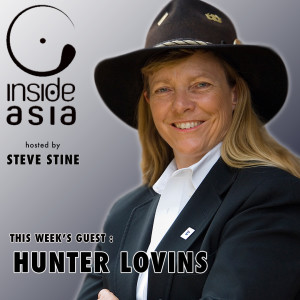
Friday Dec 11, 2020
A Finer Future (w/ Hunter Lovins)
Friday Dec 11, 2020
Friday Dec 11, 2020
Something special happened in recent days, and in a slight departure from our regular format, I bring you a discussion held with one of the great environmental thinkers of our time, Hunter Lovins.
It was on the occasion of one of our regularly scheduled gatherings of the Asia Corporate Leadership Council that Hunter joined us virtually from her ranch in Colorado. The Council is a partnership between The Conference Board, the Center for Creative Leadership, and Inside Asia, and is comprised of a select group of senior-most leaders of western multinationals, Asian conglomerates, and family offices. Our mission: To define and promote best practice in corporate purpose. Hunter is the latest in a string of featured speakers who define what good looks like, and with permission from our members, I bring you our conversation.
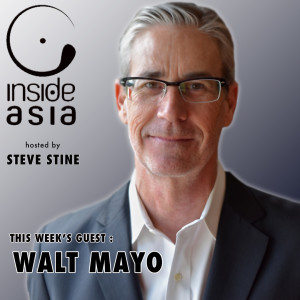
Thursday Nov 26, 2020
Machines that Listen (w/ Walt Mayo)
Thursday Nov 26, 2020
Thursday Nov 26, 2020
This week on Inside Asia, we take a look at just one more way in which artificial intelligence is ingraining itself in our daily lives. With so much hype around AI, it’s hard to know what to think of it. In one moment, AI applications can appear benevolent, even helpful. And in the next, it can be intrusive. Facial recognition, for instance, can and has been used to track and screen innocent people simply going about their business. AI, you might say, wears many faces. One moment, it’s Big Brother watching your every move. The next, it’s R2D2 trying to save your life.
I’m dramatizing, but you get the point. Now, apparently AI-enabled machines are learning to listen; so well, in fact, that advanced technology is able to decipher subtle tones, language variances and emotional nuances, virtually inaudible to the human ear. In so doing, it can determine the sentiment of the speaker. And that, says Walt Mayo, CEO of expert (dot) ai, can make a world of difference.
Take the just concluded US Presidential race, for instance, Walt and his colleagues put their technology to the test and three weeks before the election, calculated that Joe Biden would receive 50.2% of the popular vote compared to 47.3% for Trump. It struck me as a bit of a marketing ploy at the time, and a risky one at that. Why would a tech company stick its neck out with this kind of prediction when every other major poll prior to the election had Biden trouncing Trump by at least an eight percent margin?
The results are now official with Biden winning the popular vote by 51% to 47.2%. Yet, the real victor was AI. How did this relatively small tech company blow the doors off a phalanx of seasoned and highly certain professional pollsters? I asked Walt to join me in this episode to share his story and talk about the future of so-called “sentiment analysis” AI.
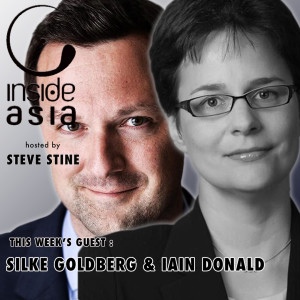
Thursday Nov 12, 2020
The New ESG Movement (w/ Iain Donald and Silke Goldberg)
Thursday Nov 12, 2020
Thursday Nov 12, 2020
What a difference an election makes. Or at least, that’s the hope. It’s as if the world has been holding its breath and now – after no shortage of political drama – Joe Biden has emerged as the new President of the United States. Why’s that important? Because the world is suffering – environmentally, socially, and economically. The US can’t change all that, but it does bode well for a new era of greater international cooperation.
As the world’s second largest polluter and the single largest economy, the US is instrumental if any progress is to be made. It’s track record on the environment, however, is less than inspiring. When things got messy some 40 years ago, exporting the problem seemed like a good idea. From the 1980s onward, US industrialists sent their polluting problems overseas, with China as a favored destination. Trump’s four-year war on the environment hasn’t helped. What we’re left with is lost time and little action.
Our planet has reached a breaking point. And thanks to a well-spring of activist investors and an increasingly well-informed consumer class, pressure is mounting for governments and companies alike to drive change or lose favor.
In this episode of Inside Asia I speak with two global specialists in the field of ESG. That stands for Environment, Social, and Corporate Governance. It’s catching on – now more than ever – as our dance with disaster draws closer and the private sector being called upon to do more. Iain Donald is U.S. and Canada Country Manager for Control Risks. Silke Goldberg is a Partner with London-based law firm, Herbert Smith Freehills. They joined me in a recent live discussion organized by GetGlobal.
If you’re a CEO, CFO or hold any C-suite position within your organization, this episode of Inside Asia is meant for you. Here’s our discussion.
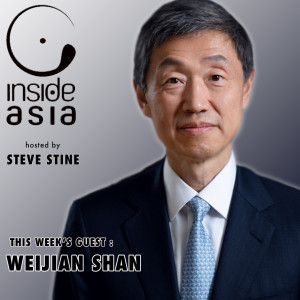
Monday Nov 02, 2020
Money Games: Negotiating Private Equity (w/ Weijian Shan)
Monday Nov 02, 2020
Monday Nov 02, 2020
When the influence of private capital exceeds that of a sovereign state, it raises an important question: Where does real power reside? Increasingly, it seems, money makes the world go round. At a time when stocks are over-valued, bond yields are flat, and property prices are inflated, private equity is where it’s at.
Indeed, since the chaos of the 2008 Global Financial Crises, PE firms have only grown in size and influence. Asia has been a key beneficiary. And China – until recently – has absorbed the lion’s share of private capital. As and when US-China tensions subside, the surge is likely to continue
In this week’s episode of Inside Asia, I speak to one of the PE industry giants - Weijian Shan, Chairman and CEO of PAG Group. Shan’s new book, Money Games: The Inside Story of How American Dealmakers Saved Korea’s Most Iconic Bank, is a tale on how deals get done in the convoluted world of big money and big personalities.
It’s been over 20 years since Shan and his colleagues at Newbridge Capital landed in Seoul to rescue Korea First Bank, but he tells it like it happened only yesterday. The transaction is epic in both size and circumstance. But it also speaks to the central importance of developing personal trust and accountability to offset fears of xenophobia and big money exploitation. It also speaks to the enormity of PE as a vehicle for rescuing distressed businesses – a point not lost in these pandemic times.
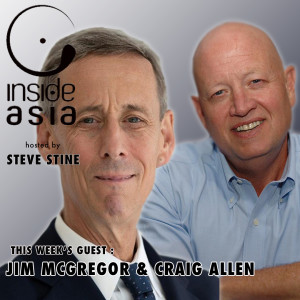
Thursday Oct 22, 2020
Contemplating the Future of US-China Relations (w/ Jim McGregor & Craig Allen)
Thursday Oct 22, 2020
Thursday Oct 22, 2020
In the run-up to this year’s US Presidential election, the only Asia topic that appears to loom large is China. And during these days, no self-respecting US politician can talk about this rising Superpower without saying something disparaging.
Indeed, there’s hardly a businessman, legislator, or policy wonk within the Beltway who has anything positive or hopeful to say about US-China relations. Maybe that’s simply because there’s nothing to be gained politically by doing so. Americans need to blame someone for lost jobs, climate change, and a global pandemic – why not China? It’s a communist country, after all, and Americans are fond of blaming things on communists too.
Remove yourself from this political quagmire and step outside of the U.S. and you get a more balanced – dare I say – sophisticated take on China, it’s role in the world, and the existential threat (if any) that it poses to a United States undergoing an identity crises.
In this episode, I turn to two of the most thoughtful commentators on US-China relations. Jim McGregor and Craig Allen. Jim is Shanghai-based and a consummate China watcher, author, and a top advisor to US businesses in China. Craig is D.C.-based and President of the US-China Business Council. I had the pleasure of facilitating a hard-driving conversation between the two experts in a recent GetGlobal virtual event. In the course of this 55-minute tria-logue, we covered a lot of territory, challenged one another on some of the more popular US-centric characterizations of China, and contemplated prospects for a more constructive relationship between the two countries under a Biden administration.
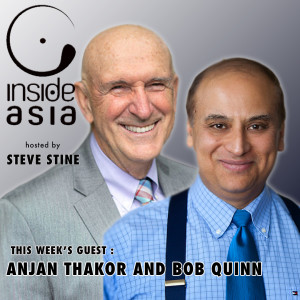
Sunday Oct 11, 2020
The Economics of Corporate Purpose (w/ Bob Quinn & Anjan Thakor)
Sunday Oct 11, 2020
Sunday Oct 11, 2020
2020 has been a headline year, dominated by news of a global pandemic, US elections, Brexit and China’s rise to power. On the business front, Corporate Purpose has emerged as the theme of the year. It comes on the back of an August 2019 statement released by the US-based Business Roundtable, calling into question the primacy of shareholders. For the past 50 years, corporations have operating on the principle that the only responsibility of business is to generate profits for its shareholders.
With the world in such a muddle, that core idea is coming into question. If issues like climate change, inequality, and social justice aren’t addressed, there’s growing concern that societies everywhere will come face-to-face with collapse. Corporations – so say pundits – are best positioned to make a difference.
Helping companies make that shift so that purpose and profits might co-exist is the work of my two guests this episode. Robert Quinn and Anjan Thakor are US-based professors. Together, they wrote a book entitled: The Economics of Higher Purpose: Eight Counter-intuitive Steps for Creating a Purpose Driven Organization. I spoke with them by phone recently. We touched on the traditional employer-employee contract, the new operating paradigm, and what it takes to bring a purpose agenda to life.
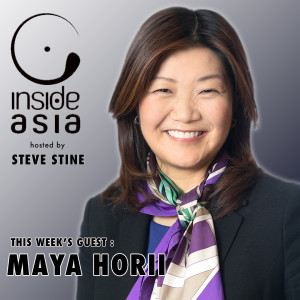
Saturday Oct 03, 2020
Japan and the Problem and Promise of Automation
Saturday Oct 03, 2020
Saturday Oct 03, 2020
If the world has a problem, technology will solve it. That’s the stance taken by many technologists and industrialists who trust that human innovation – when put to the test - will prevail. It’s the “human” part of the equation, however, that is increasingly in question.
In Japan, for instance, where a demographic decline in working age citizens demands automation in order to fill the gap, Covid-19 has given the country further reason to invest in AI, robotics, and machine-learning wherever possible. Elsewhere in the world, where Covid has left millions unemployed, there’s rising concern that companies will pass on human employees in deference to machines.
Observing Japan to see how it’s robotic revolution takes hold and impacts people could serve as a bellwether for policy-makers elsewhere. Governments are desperate to rekindle economic growth after Covid’s devastating effects. This means encouraging corporate recovery, while reducing unemployment. In certain sectors – primarily industrial – the two may prove mutually exclusive.
To help us understand what’s at stake, I contacted the author of the McKinsey article, Maya Horii. She’s a Partner in McKinsey’s Tokyo office and advisor to both public agencies and private enterprise. We discussed Japan’s unique set of circumstances, its declining workforce, poor productivity, and prospects for displacing human workers with machine-based alternatives.
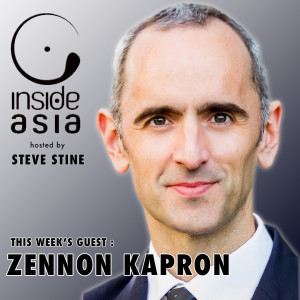
Thursday Sep 24, 2020
Digital Currencies and the China Question (w/ Zennon Kapron)
Thursday Sep 24, 2020
Thursday Sep 24, 2020
After living in the shadow of Western-style development for the greater part of the last 200 years, China is in the throes of crafting it’s own vision of what it means to be a modern economic power. That doesn’t always sit well with other countries – and particularly the U.S. – a nation grown accustom to it’s hard-won hegemony.
China’s demonstration of its new-found strength is showing up in dozens of ways. Militarily, as in its testing of its territorial rights with India and in the South China Sea. Politically, as reflected in its imposition of new security laws in Hong Kong. And diplomatically, squaring off – as it were – with the US over issues relating to trade and technology transfer.
The country is also investing in a series of longer-term strategies to ensure it’s economic and political rebound, in some cases, thinking well ahead of the curve, and ahead of other nations like the US, the UK, and Japan – all mired in their own set of domestic issues.
In this week’s episode, we tackle China’a quest to deploy one of the world’s first comprehensive digital currencies. DCEP as the chosen acronym for China’s so-called Digital Currency Electronic Payment platform now under development and primed for piloting. What are digital currencies and why is China so enthusiastically pushing to convert its currency from a cash to a digital equivalent.
Here to break it down for us on this episode of Inside Asia is Zennon Kapron, Founder and Director of Kapronasia, a fintech boutique strategy and research firm.

Thursday Sep 17, 2020
US Voter Turnout and Americans Abroad
Thursday Sep 17, 2020
Thursday Sep 17, 2020
This is Steve Stine from Inside Asia. Just 45 days from today Americans will go to the polls and cast a vote for the next president of the United States. By all counts, this is proving one of the most essential electoral decisions in modern US history. The outcome will fundamentally change the course of America and the reverberations will be felt throughout the world.
As Inside Asia listeners, I’m asking one of two things of you: If you’re an American living abroad, please register and vote. If you’re not a US citizen, reach out to your American friends and colleagues and ask them if they plan to vote. If they say “no” or “not sure,” please share with them the following.
According to a 2018 Pew Research survey, only 55.7 percent of eligible US voters are registered to vote. By world standards, that’s shockingly low. Among the 32 OECD countries that support free and open elections, the US ranks 26th in terms of voter turnout.
Rather than explore any number of socio-political reasons as to why this might be the case, let’s focus on what’s at stake. As a nation, the US – for better or for worse – has imprinted its political, cultural and economic DNA on the world. It’s shaped our current brand of global Capitalism by virtue of its strength, money, and ingenuity. Whether we like it or not, a half-century of US foreign policy has imposed itself on the current world order. Some might disagree, but I’d say the results are mixed at best. Economically, many might be better off today than they were decades ago, but social, political, and environmental strife persist, unabated.
As Inside Asia listeners are well aware, the geopolitical balance is shifting. It’s a frustrating moment for a superpower in the throes of change and whether you agree with US leadership efforts or not, it’s impacting the way the world sees the country. While the days of US hegemony are fading, there’s still an important role to be played by a nation that’s left such an indelible imprint. It is, therefore, the responsibility - if not the obligation - of every American – at home and abroad - to exercise his or her inalienable right to vote.
This is not a partisan plea. But rather a call to participate in mapping a future for a country at the crossroads.
To my fellow American expats and to all those who support a role for America in the world, please don’t miss this chance to leave your mark on history. It’s not too late. Registering and voting from abroad is simple. Not sure how? Here’s a message from votefromabroad.org.
For more information, visit www.votefromabroad.org. And as always, we thank you for listening.

